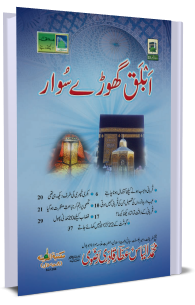Our guide to the meaning and significance of Qurbani
Our guide to the meaning and significance of Qurbani – and therefore the Festival of Sacrifice.
What is Qurbani?
Qurbani means sacrifice. per annum during the Islamic month of Dhul Hijjah, Muslims around the world slaughter an animal – a goat, sheep, cow or camel – to reflect the Prophet Ibrahim’s willingness to sacrifice his son, Ismail, for the sake of God.
At least one-third of the meat from the animal must attend poor or vulnerable people. Traditionally, a Muslim would keep one-third of the meat for his or her family and provides the ultimate third to their neighbours.
The significance of Qurbani
The practice of Qurbani is often traced back to the Prophet Ibrahim, who dreamed that God ordered him to sacrifice his only son, Ismail. In his devotion to God, Ibrahim agreed to follow his dream and perform the sacrifice. But God intervened and sent a ram to be sacrificed in Ismail’s place.
Ismail was spared because Ibrahim proved he would sacrifice his son as an act of piety, despite the loss it might have caused him. The continued practice of sacrifice acts as a reminder of Ibrahim’s obedience to God.
Eid-al-Adha, the Festival of Sacrifice, is widely known during the twelfth month of the Islamic calendar, referred to as Dhul Hijjah – which translates as ‘Lord of the Pilgrimage’. it's during this month that pilgrims visit Mecca so as to go to the Kaaba. Hajj is performed on the eighth, ninth and tenth days of the moon. Eid ul-Adha begins on the tenth and ends on the 13th. In 2014, Eid is happening around 3 October.
Islamic Relief and Qurbani
Islamic Relief has been completing Qurbani projects since 1986, once we performed 670 Qurbani. In 2013, around 110,000 Qurbanis were performed, benefitting over two million people.
The meat is distributed fresh, frozen or canned, counting on factors like cost, availability and access, though the bulk of nations receive fresh meat. The meat is purchased from local suppliers so as to profit the local economy. Each meat packet contains on average three kilograms of meat, which can provide a family of 4 with meals for a few weeks.
Those who receive the Qurbani meat include widowed women, orphaned children, refugees and poor, elderly or disabled people. For the bulk of those people, meat isn't a part of their regular diet. The Qurbani meat allows some families to eat meat after an entire year.
When families receive Qurbani meat, it fosters a true sense of hope for them and allows them to celebrate this important occasion alongside many other Muslims across the planet.
This year, we'll still enable poor people around the world to celebrate Eid-al-Adha. you'll help: give your Qurbani with Islamic Relief today.

